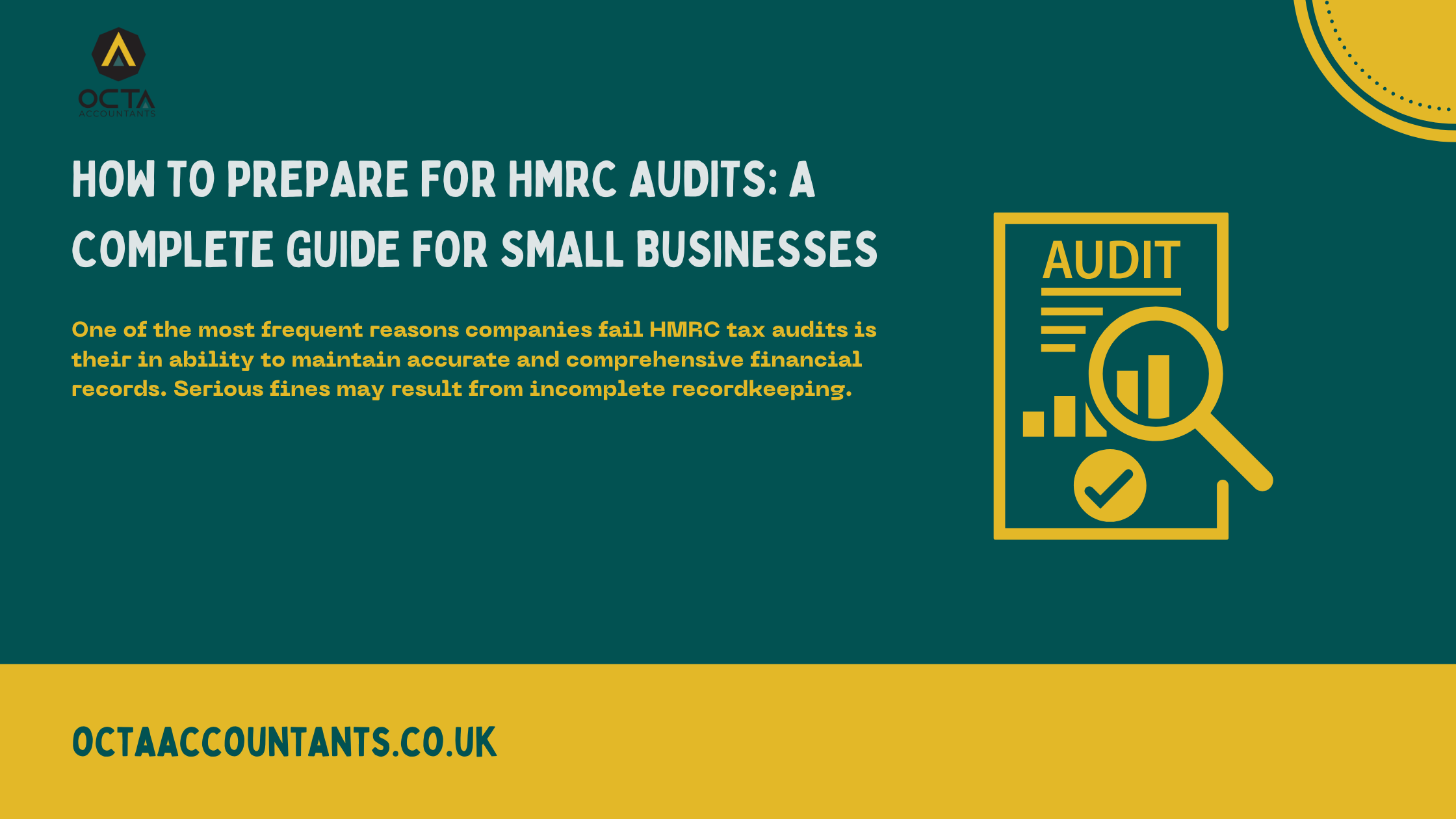How To Register a Company in the UK?


Octa Accountants

8 Min Read

Nov 19, 2022

Company Incorporation
Registering your company is a legal obligation before starting a business in the UK. Companies House is the regulating authority and has the right to approve or reject your request. When your application is approved, you will receive a certificate confirming that you are legally permitted to operate a business. Here, we will guide you on how to register your company in the United Kingdom.

Why Register a Company In The UK?
Incorporating a company can be quite beneficial as the company gains status and becomes an autonomous entity. It helps secure the company’s name and also offers tax advantages. Moreover, it introduces business financing options along with better opportunities for shareholders.
Setting up or expanding a business in the United Kingdom is convenient. You have control over how your company runs. Forming a private limited company is the most popular option for incorporating a corporation as a separate legal entity in the UK. You can establish a company as a sole trader or as a partnership as well. You do not need to register a business as a sole trader or general partnership. But if you decide to limit your liability by establishing a legal entity, then it is essential to register your company with Companies House.
Types of company registration:
You have to decide on a company-type before registering a company. These are the most common company formations.
Private Limited Company
A private limited company minimises the owners’ liability and does not offer its ownership to the public. Private limited companies are of two major types:
i) Private Company Limited by Shares
Among 4 million+ registered businesses in the Companies House, over 95% of them are Private Limited Companies by shares. Also, anyone can start a private limited company by shares as there is no minimum capital requirement. In the future, you can turn a private limited company into a public limited company to raise capital.
ii) Private Company Limited by Guarantees
It minimises the guarantors’ liability to a predetermined amount, which they must pay if the company is dissolved. Owners/members of the company are guarantors, and there is no share capital or shareholders. This company formation is used by charities, clubs, student unions, social enterprises etc.
Pros of Private Limited Company
- Limited risk in case the company fails
- Suitable for better tax efficiency
- Applicable to most startups and SMEs
Cons of Private Limited Company
- More complex admin and accounting requirements
- Higher financial management costs
Public Limited Company
Most Public Limited Companies are launched as Private Limited Companies in the beginning. Once a limited company achieves a share capital of £50,000 or more, it can go public. Furthermore, it is necessary to have two or more directors and one company secretary.
Pros of Public Limited Company
- Limits the liabilities
- Higher credibility and reputation
- Highest potential for growth
Cons of Public Limited Company
- More complex accounting and admin requirements
- Requires £50,000 or more share capital - 25% of which has to be paid before starting trading
- Highest accounting and financial management costs
Sole Trader Company
As a sole trader, you own and operate the company. The owner is accountable for all liabilities or debts.
Pros of Sole Trader Company
- Full control over business
- Easier to form
Cons of Sole Trader Company
- Unlimited liability for the sole owner
- Overwhelming accounting and compliance burden
Community Interest Company
Community Interest Companies (CIC) work for the benefit of a community rather than for shareholders or members – this company can be a private or public limited company. The members of CIC have to show transparency in their financials and operations. Some examples of CICs are community trusts, housing associations, and care centres.
Pros of Community Interest Company
- Limited liability similar to an LTD company
- Work towards the benefit of a specific community only
Cons of Community Interest Company
- Limitations on asset usage and dividends
- More complex incorporation requirements
Private Unlimited Company
Private Unlimited companies get a high level of secrecy for their financial condition as they are not legally liable to submit annual accounts to Companies House. Also, there’s no liability threshold that owners have to pay in case the company is dissolved.
Pros of Private Unlimited Company
- Provides financial confidentiality
- Unlimited liability for members
- Lowest risk option
Cons of Private Unlimited Company
- Not applicable to most businesses
- No protection for shareholders
- Most complex registration requirements
- Low credibility
Limited Liability Partnership
Partners share the responsibilities and profits according to an LLP agreement in a Limited Liability Partnership. Moreover, the liability of the partners is limited to the capital contribution, and they are not held accountable for other partners’ actions.
Pros of Limited Liability Partnership
- Shared workload
- Splits the debts and profits between partners
- Limits the liability of partners
Cons of Limited Liability Partnership
- Individual taxes have to be paid by each partner
- Requires legal intervention before dissolving a partnership
How to Register a UK Company?
The process includes gathering the information required to register a UK company with Companies House. It includes deciding on a company structure and formalising how your company will operate.
The following are the stages to begin learning how to register a company in the United Kingdom:
i) Choose a Company Structure
When entrepreneurs form a UK company, they choose a ‘private company limited by shares.’
This business structure can help you manage your taxes effectively. For example, as a company director, you can draw some of your earnings from company dividends, resulting in lower taxation. The way you set up your business is based on the sort of work you conduct and affects how you pay taxes and obtain funding.
Check whether you should register as one of the following instead:
- Self-employment
- Business Partnership
- Social Enterprise
- Overseas Company
Also Read: 8 Benefits of Outsourcing Bookkeeping & Accounting
ii) Select a Company Name (UK)
Consider the following tips before deciding on a company name in the United Kingdom:
- Analyse the market in which you intend to operate
- Choose a meaningful name
- Use a short name and check its availability
- Avoid company names that are difficult to spell
- Examine existing trademarks
iii) Enter Your Company Information
When you register a UK company, much of the information you supply becomes public.
Companies House will require information on your:
- Registered office – the address to which Companies House will send mail. It must be in the United Kingdom, and the company directors must be reachable at the address.
- Company directors and a secretary– at least one director is required for your company. Companies House will need their full name, date of birth, and residential address. A responsible director must be appointed, although a company secretary is not required.
- Shareholders or guarantors – Every company must have at least one shareholder who can also be the director. Companies House will require shareholders’ names, dates of birth, and residential addresses.
If you do not have a specific address for your business, you should register a UK company using your home address.
iv) Company Shares Allocation
When you register a company in the UK, you must assign shares to your shareholders (s). The easiest method is to give each shareholder one share and make each share.
v) Prepare a Memorandum and Articles of Association
These documents formalise how your company will operate. They need to be signed by the company director(s), shareholder(s) and secretary before you register a company in the UK. They should prepare documents agreeing on how to run your company while monitoring the accounting records. Standard template documents can be used, or professional advisers can train them on the company’s behalf.
vi) Submit Everything to Companies House
Submit your application to the Companies House.
You’ll need to register an official address and choose a SIC code which will identify what your company does and check the rules for the company addresses.
Final Verdict
Make your company registrations easier with Octa Accountants. Each business is different, so the desired company type will be different as well. We prepare bespoke company incorporation plans, according to our client’s needs.
Book a meeting to discuss your requirements and get a fully personalised plan.
We help you clear all the checks and send the application for e-sign. With our company formation packages, you can register a UK company quickly and simply.
About Us
Octa Accountants is a one-stop accounting firm that offers a wide range of finance management services.
Our Blogs
How Automation in Accounting is Transforming Financial Management for Businesses?
How Automation in Accounting is Transforming Financial Management for Businesses? Octa Accountants 7 Min Read Apr 14, 2024 Technology Staying ahead of current trends is crucial for development and sustainability in the dynamic business environment. The advent of automation in accounting has been one of the biggest changes in recent years. Automation is changing how […]
What is UK Corporation Tax?
What is UK Corporation Tax? Octa Accountants 7 Min Read Apr 14, 2024 Company Incorporation For businesses hoping to be legally and financially effective, navigating the complexity of the UK tax system is essential. The UK corporation tax is a key part of this system. Understanding the intricacies of UK corporation tax is essential for […]
How to Prepare for HMRC Audits: A Complete Guide for Small Businesses
How to Prepare for HMRC Audits: A Complete Guide for Small Businesses Octa Accountants 7 Min Read Apr 14, 2025 Audit From overseeing daily operations to making sure financial records are accurate, entrepreneurs balance a variety of duties as running a small business has its own unique challenges. Running a business is never easy no […]



